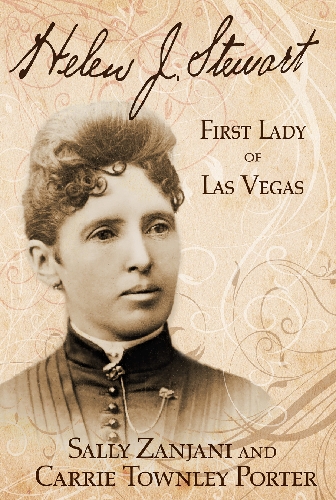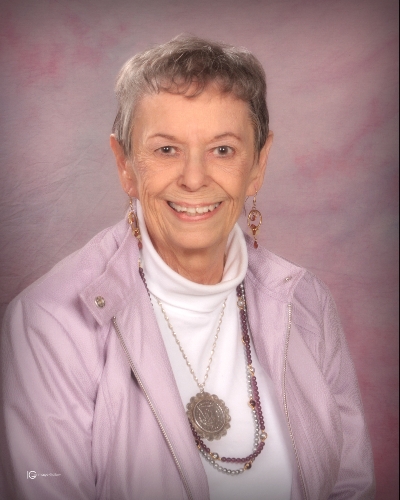Book chronicles life of pioneer Helen J. Stewart
The rise of female governors in neighboring Arizona and New Mexico, as well as national heroines from the region such as U.S. Congresswoman Gabrielle Giffords and Homeland Security Secretary Janet Napolitano, is deeply rooted in the Southwestern ethos.
In an erudite and vivid new biography, "Helen J. Stewart: First Ladty of Las Vegas," Nevada scholars Sally Zanjani and Carrie Townley Porter chronicle the courageous journey of a 19th-century pioneer who shattered glass ceilings for women long before her contemporary reincarnations.
A household name to historians in Nevada, Helen J. Stewart was known as "the mistress of the Mormon Trail." As the authors suggest, Stewart could have succumbed to the lack of freedom among women married to the frontiersmen of the era. She gave birth to her first child at 20 and, a decade later, became a widow with four children after the murder of her husband.
Against improbable odds, Stewart tenaciously fought on and became a central force in shaping modern Las Vegas. In evolving roles of landowner, school board member and family matriarch, Stewart worked with Native Americans and local politicians alike. A virtuous and stable force in Nevada's early history, she appeared to have one abiding concern: improving the lives of those who populated the growing region.
In clear and descriptive language, Zanjani and Porter, both leading historians in the state, have combed through years of Nevada's history. Their account of Stewart is illuminating because it closely considers both the historiography of the region and the personality of its people. This should not surprise readers: Zanjani and Porter have studied the formation of the American West for years.
In Stewart's early years, the founding mother of Las Vegas studied at California's co-educational Hesperian College, where she probably participated in the school's unusually active social life. It is here that she probably first discovered her promise as a literate and civic-minded young woman.
Stewart married a ranch owner in the region, and they ultimately relocated to the Pioche settlement. Stewart was hardly intimidated by the region's lawlessness and murders, befriending the Southern Paiutes whose artistry she embraced. "Seeing them bereft of their traditional lands and food sources, she sympathized with their plight and tried to help sustain them. She nursed them when they sickened," the authors write.
Constant reminders of education's importance, Stewart's encounters along the trail influenced her most significant contribution to Las Vegas: the creation of a legitimate school district. "To swell the ranks, Helen invited part-Indian boys to attend," write Zanjani and Porter. As the area matured, with more appealing homes and a water system, Stewart assumed other duties, such as postmaster of the valley.
Stewart witnessed Las Vegas develop into a town that could provide its citizens real services. This included "railroads (that) would become the backbone of the Las Vegas economy" as well as the viability of local markets where she saw "an agricultural paradise" and "opportunities for raising cattle on the wild grasses in the region."
"Recognizing her place as the valley's first historian, people brought her artifacts relating to the Spanish presence in the area, to add to her already fabled collection of Indian basketry," the authors add.
While Stewart was not a vocal advocate of the women's suffrage movement -- it had yet to bloom in most circles during her day -- Zanjani and Porter think her spirit invigorated the ongoing crusade for women's rights.
"Helen's methods were tactful and gentle. Instead of fiery speechifying about the need for women on the school board, she simply would offer herself as a candidate for election (and win)."
Stewart was especially interested in civic activities, but the biography does not neglect her family life. With equal attention, the authors weave together a nuanced history of professional and personal experiences -- a public and private persona not unlike those of many wives or mothers in politics today.
In sum, Stewart's path was one that transcends the city she helped bring to life and stretched the cause of women's empowerment across the nation.
Stephens Press is a division of Stephens Media, which owns the Las Vegas Review-Journal.
Review
Title: "Helen J. Stewart: First Lady of Las Vegas"
Authors: Sally Zanjani, Carrie Townley Porter
Publisher: Stephens Press
Pages: 202
Price: $22.95



















